Cultural Identity of Vukovar: New Book Presented in Vukovar
June 9, 2021 - The fascinating question of the Cultural Identity of Vukovar is researched in a new book edited by Dr. Mateo Žanić and Petar Elez. However, as the editors stressed in the introduction, further research is needed to encompass all social groups in Vukovar and their contribution to the heritage of Vukovar.
After being published back in April this year, the book „Cultural Identity of Vukovar – Contribution to Investigating Heritage and Successors“, was presented this Wednesday in Vukovar. As Ivo Pilar Social Research Institute writes on its website the book was published in cooperation with the Vukovar State Archive, so it was only suitable that the first book presentation was held in Vukovar at the videoconference hall of College Of Applied Sciences „Lavoslav Ružička“ (named after a famous Croatian chemist whose work is awarded a Nobel Prize). In addition, the event marked International Archive Day.
The book was edited by Dr. Mateo Žanić and Petar Elez, and the presentation, alongside editors, saw scientific experts Dr. Dražen Živić, Mirela Hutinec, and Dr. Domagoj Tomas talks about the book.
„Fast events triggered by globalization process and information revolution which paradoxically lead to today's societies being fiercely occupied with the meaning of past, and preserving its valuable traces. In that context, there is a spreading interest for heritage that holds an important component to understand the relationship between the past and present“, says the editorial introduction of the book.
The editors went on to explain how „the city proved to be futile to interpret the meaning of heritage and its contribution to cultural identity,“ and the editors wanted to present various aspects of Vukovar's cultural heritage.
Apart from editors Žanić (who wrote a chapter „Layers of memories and material heritage in modern-day Vukovar) and Elez (author of the chapter „State archive in Vukovar and development of archive service in Vukovar-Srijem County“), the book features eight more authors. Ivan Rogić (Whose Heritage? Who is the successor?), Dražen Živić (on Vukovar's feudalists), Vlasta Novinc („Danube, food, Corso“), Dragana Drašković (on the cultural life of Borovo Selo), and more by Dragan Damjanović, Toni Roca, Ivana Bendra and Ivan Hubalek.
With these broad presentations of culture and heritage in Vukovar, editors hope this book will encourage further research as they are aware this is certainly not the final word on these interesting questions and issues.
„As editors, we are aware that the book does not deal with topics that concern different social groups that left their trace in Vukovar end enrich the history of the city. We hope that future editions that will deal with this topic expand the reach of issues and help us to realize better what do we inherit from the past and why is that important“, concludes the introduction of the book.
So far, the book is available only in Croatian, and research that will, as editors say, deal with other social groups in Vukovar is yet to come. Keeping in mind the terrible aftermaths of the war in Vukovar in the 90s and inter-ethnic tensions, further findings on joint cultural contribution to Vukovar may indeed be the enlightenment needed for peaceful cohabitation and development of Vukovar as a perspective city in Croatia.
Speaking of heritage, learn more about UNESCO recognized heritage in Croatia on our TC page.
For more about science in Croatia, follow TCN's dedicated page.
Highlights of the Week: 5 Big Events in Croatia from May 3-9, 2021
May 7, 2021 - TCN's regular retrospect of Highlights of the week, through the selection of TCN's reporter Ivor Kruljac.
President Milanović loved by locals in Plaški. Firefighters quickly reacted to the fire in Zagreb recycle yard. Pula celebrated its liberation while Šibenik received new doses of coronavirus vaccines. Dinamo and Hajduk end their match in a tie. Overall another interesting week in Croatia, and here are more details on all highlights.
Highlights of the week: President Milanović loved in Plaški county
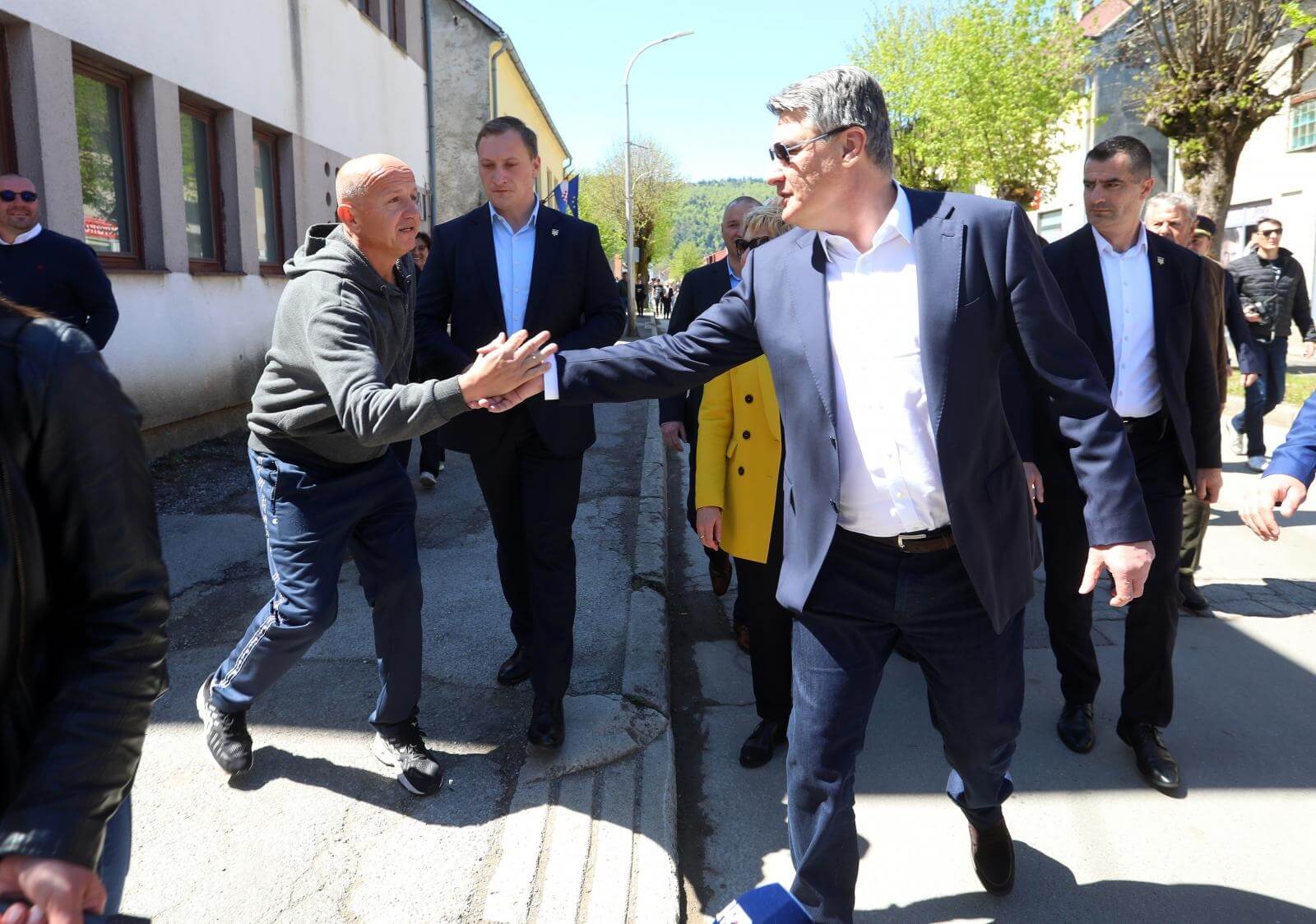
© Kristina Stedul Fabac/ PIXSELL
Croatian president Zoran Milanović visited Plaški county near Ogulin on Tuesday to visit the newly-build Firefighter's home and Plaški Culture Home. The locals welcomed president Milanović with ovations, and many use the opportunity to handshake and take a photo with the president. As Večernji List reports, Milanović took the visit as an opportunity to comment on the hate speech incident at Borovo Selo. He stated that the President of Serbian National Council Milorad Pupovac and Croatian Prime Minister „should use the police, but they don't, they are causing incidents.
Highlights of the Week: Pula celebrating its liberation in WW2
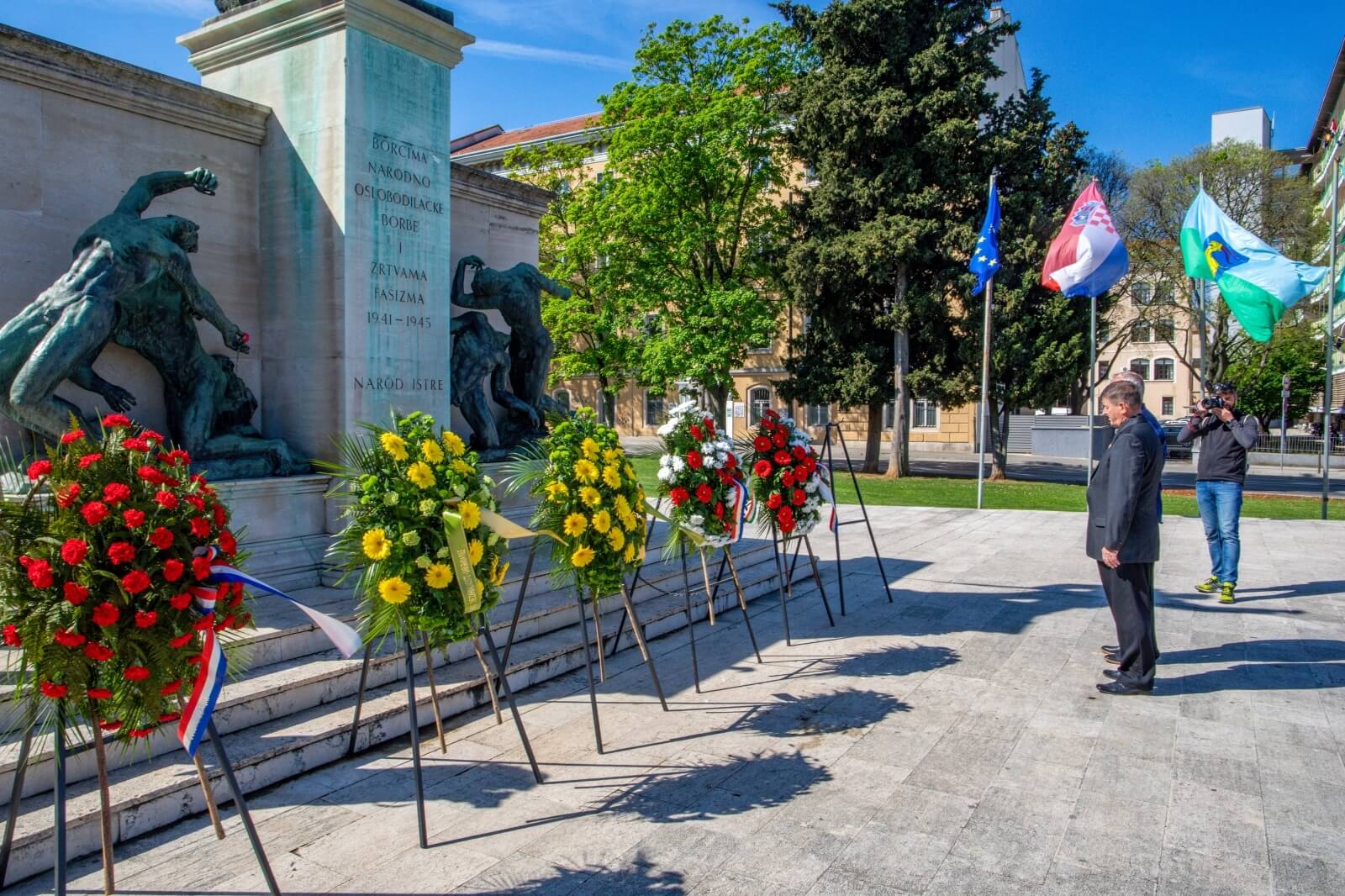
© Srecko Niketic/ PIXSELL
Pula celebrated its annual liberation day and the Pula City Day, marked on May 5. In Tito's park, the traditional commemoration to the fallen WW2 soldiers of Tito's partisan army saw Tiziano Sošić (president of Pula City Council), Elena Puh Belci (vice mayor of Pula), Aleksandar Matić (chief of the City of Pula Office) and Fabrizio Radin (vice-county ruler of Istria county) paid their respects. Representatives of associations of anti-fascist fighters and anti-fascist of the city of Pula were present too.
Highlights of the Week: Dinamo and Hajduk end with an even score 1:1
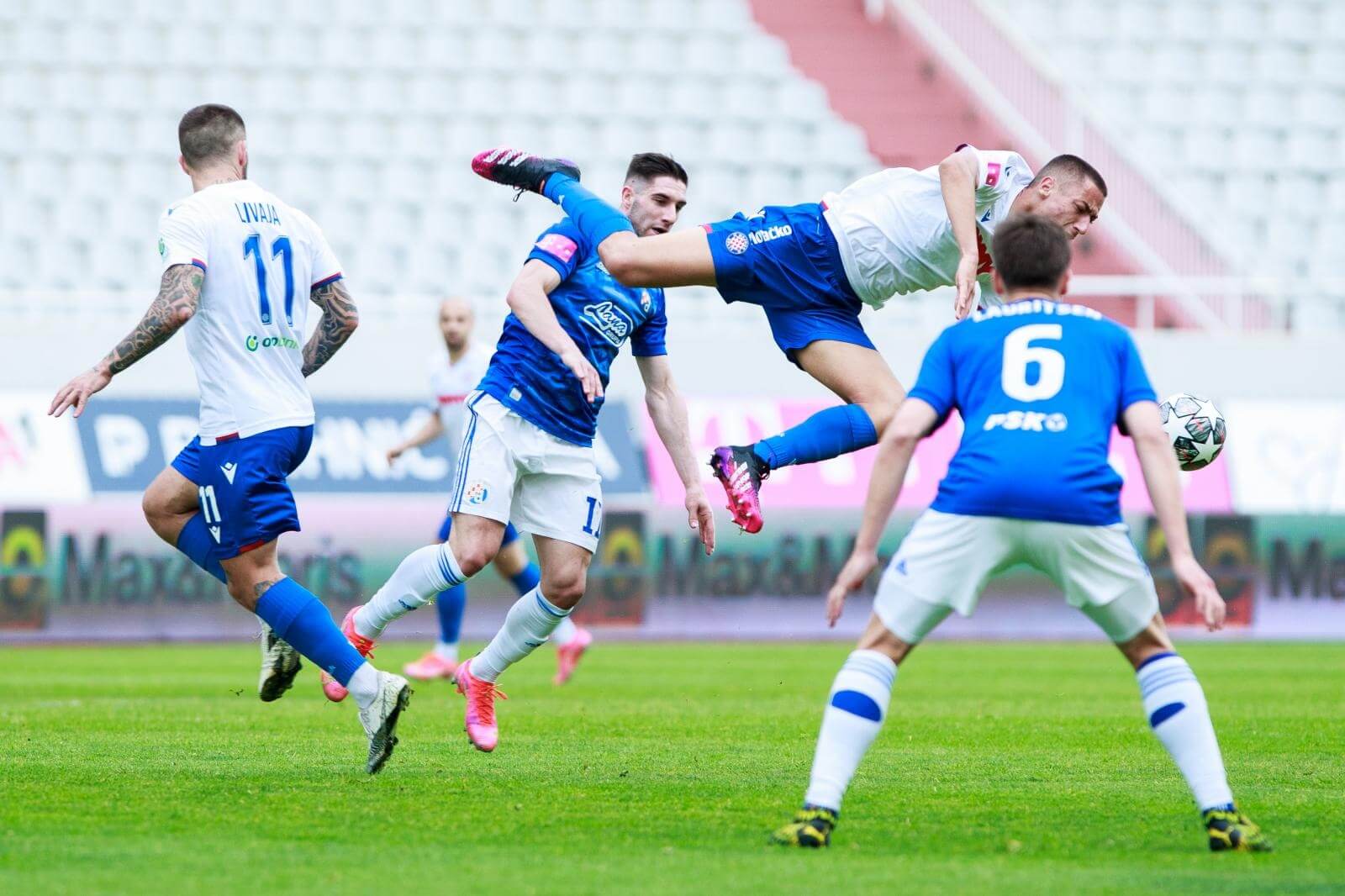
© Milan Sabic/ PIXSELL
Hajduk and Dinamo's eternal opponents played another game at Hajduk's home of Poljud Stadium in Split on Wednesday. The match was the 22nd round in Croatian First League, and fans couldn't wait for it as the game was postponed.
Hajduk opened the match well and had a chance to take the lead in the first 20 seconds. Kačaniklić received an excellent long ball and ran on the right side. He rushed into the penalty area and shot diagonally, but Livaković came out and closed his corner. Dinamo improved and took the lead in the 16th minute with a goal by Majer, and Livaja returned the favor in the 44th minute. Diamantakos hit the crossbar in the final minutes of the match but without success.
After three victories in the previous three clashes with Hajduk this season, Dinamo failed to achieve maximum performance and almost mathematically secured the title but entered the last four rounds with a seven-point advantage over Osijek. The fail happened despite Dinamo facing Hajduk with the strongest possible lineup.
Highlights of the Week: Vaccination in Šibenik continues successfully
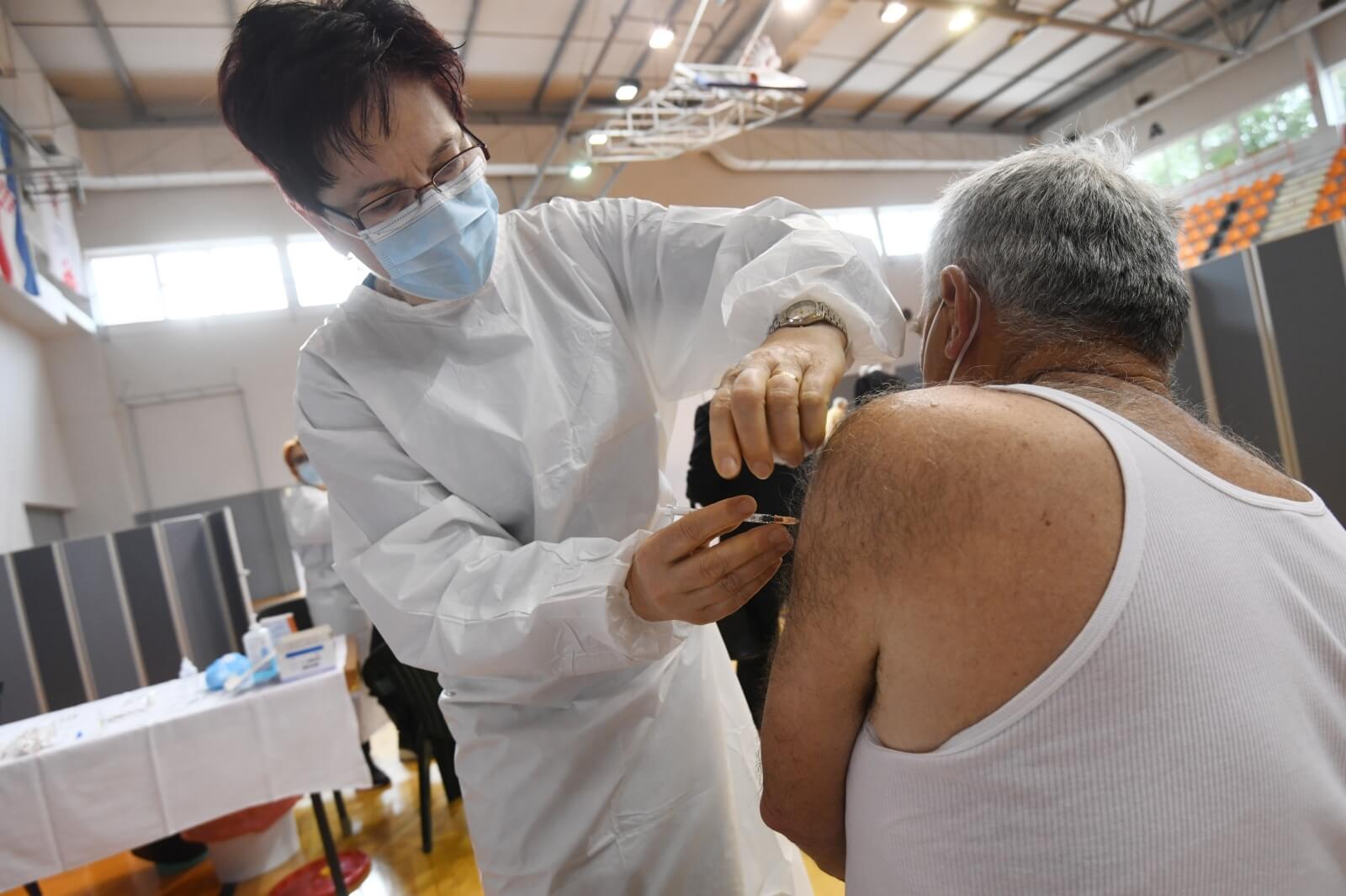
© Hrvoje Jelavic/ PIXSELL
Larger quantities of vaccines came to Šibenik on Friday, allowing vaccination in Baldeki Sports Hall to go without problems for the second day in the row. The vaccination attracts a number of citizens, so the area got quite crowded.
Highlights of the Week: Recycling yard in Zagreb on fire, reasons unclear
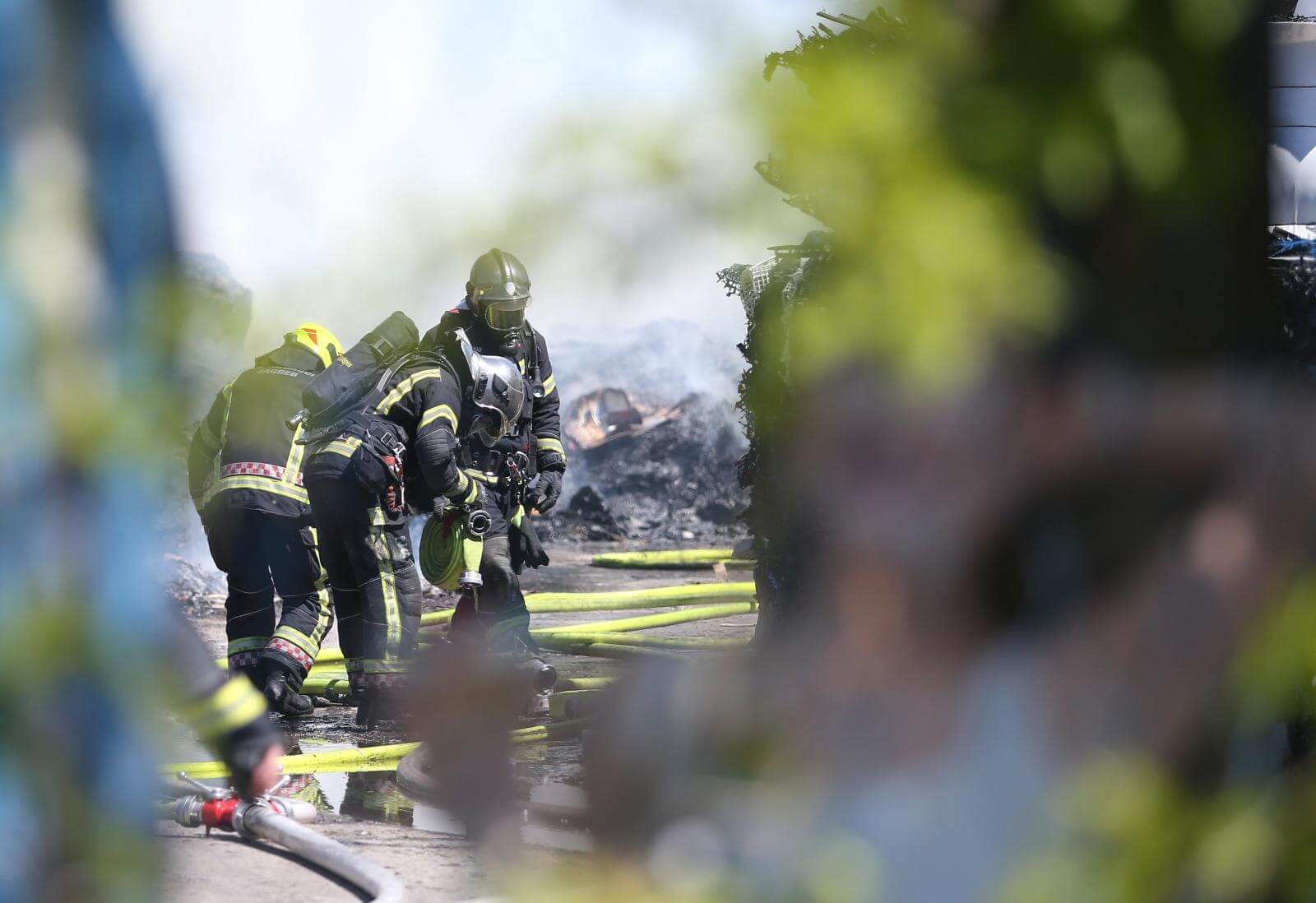
© Matija Habljak/ PIXSELL
Zagreb's recycling yard, located on Sarajevska Cesta in Novi Zagreb, was victimized by fire but quickly localized and put under control on Tuesday. The fire caught four containers, and 21 firefighters with six fire trucks rushed to the field. Police investigated the cause of the fire, but the reason is, for the moment, unknown. Firefighters managed to operate despite the lack of hydrants, and the thick white smoke was noticed by citizens who live in the buildings close to the yard, reported Večernji List.
To learn more about Croatia, have a look at our newly launched TC website.
For more about news in Croatia, follow TCN's dedicated page.


